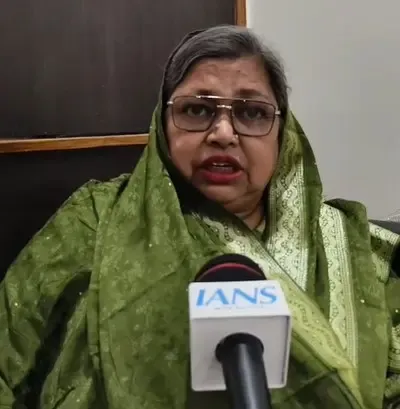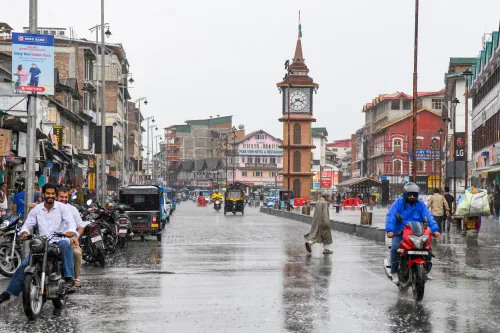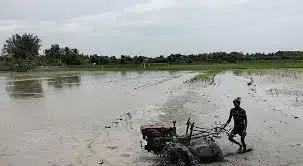AIMPLB Women’s Wing Leader Advocates for Waqf Law, Calls for Accountability for Misuse of Waqf Assets

Synopsis
Key Takeaways
- Shaista Ambar supports the Waqf (Amendment) Act, 2025.
- Calls for action against those misusing Waqf properties.
- Waqf land should serve community welfare, not individual benefit.
- Criticism of political inaction regarding Waqf land management.
- Proposal for housing and training centers for divorced Muslim women.
Prayagraj, April 11 (NationPress) The President of the All India Muslim Women Personal Law Board and prominent social activist Shaista Ambar expressed robust support for the recently enacted Waqf (Amendment) Act, 2025 on Friday.
She demanded strict measures against those who have exploited Waqf properties for personal gain and called on the Muslim community to collaborate with the government to identify illegal occupants and reclaim the Waqf land.
In an interview with IANS, Ambar stated, "Those who have violated the principles and regulations governing Waqf properties must be held responsible. Waqf land is not meant to be sold, bought, or donated, as it was entrusted by a Muslim in the name of God for the welfare of society, particularly for the economically and socially disadvantaged."
She emphasized that the core mission of Waqf is to empower the community, enabling the underprivileged to become self-sufficient and capable of contributing back to society.
"If individuals have misappropriated Waqf properties for personal gain, they should be thoroughly investigated, and if guilty, the land must be reclaimed from them," she asserted.
The Waqf (Amendment) Bill was approved by the Lok Sabha on April 3 and by the Rajya Sabha on April 4, officially becoming law on April 8.
Shaista Ambar highlighted that Waqf properties should be utilized for beneficial purposes such as providing shelter homes for Muslim women, children, orphans, and the elderly, as well as for educational institutions, madrasas, mosques, graveyards, factories, hospitals, and other welfare-focused facilities.
"This will enable Muslims, especially women and marginalized groups, to integrate into the mainstream of development and contribute to national progress," she stated.
She also urged the All India Muslim Personal Law Board (AIMPLB), which has opposed the new law, to partner with the government in identifying scams and fraudulent activities within the Waqf system.
"The AIMPLB should engage with the government, pinpoint the frauds, liberate the land from illegal possession, and create shelter homes for women. This will empower women to become officers, judges, political leaders, and responsible citizens," she declared.
Ambar criticized the INDIA bloc and AIMIM chief Asaduddin Owaisi for opposing the Waqf Act, labeling them as "power-hungry." She questioned their inaction on the mismanagement of Waqf land during past administrations, particularly under Congress rule.
"Where were they all these years? Congress governed for decades — can they cite a single instance where any of their Muslim leaders made meaningful use of Waqf land? Did they establish any colleges, universities, hospitals, or shelter homes?" she queried.
She recounted how Muslim women once had to construct their own mosque after being denied entry into others, underscoring the lack of support from groups now opposing Waqf reforms.
"They never advocated for women's equality back then. Now they resist reforms aimed at improving the Waqf system," she added.
Ambar revealed that she has consistently spoken out against illegal practices within the Waqf Board but has often been ignored. She noted that she wrote to former Presidents, including Pratibha Devi Singh Patil and Pranab Mukherjee, and in 2017, she met with Prime Minister Narendra Modi to present her demands for reclaiming Waqf properties from illegal occupation.
She proposed establishing housing and training centers on Waqf land for divorced Muslim women and criticized the UPA government for neglecting to implement the recommendations of the Sachar Committee report.
"The new Waqf Act was crucial because many individuals within the Waqf Board have benefited unlawfully while the genuinely needy — the poor, women, widows, and elderly — continue to suffer," she concluded.









